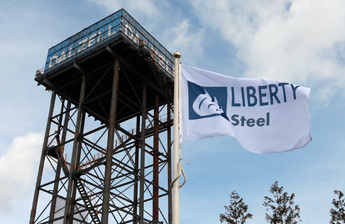Potential State aid issue highlighted in 2016 steel rescue deal
A Scottish Government review of the 2016 rescue deal which saved more than 100 jobs and retained steel plate production in Scotland has identified a potential State aid issue.

The development relates to a single clause in the arrangement with Tata Steel, via its former subsidiary Longs Steel UK, under which the Scottish Government facilitated the ownership transfer of the Dalzell and Clydebridge steelworks. There is no impact on the wider agreement or Liberty Steel’s current ownership and operation of the plants, the government said.
The review considers that Scottish Ministers’ commitment to indemnify Tata Steel, as the previous owner, from certain past, present or future liabilities arising from the sites may not comply with State aid rules and would therefore be unenforceable. This would mean that in the unlikely event of the indemnity being called upon, no money would be paid out by the Scottish Government.
The issue was identified during contingency planning undertaken in response to the administration of Greensill Capital UK. There is no adverse impact on the public purse and no money has been paid under the Scottish Government’s indemnity.
The Scottish Parliament, Audit Scotland and Tata Steel have been informed and discussions are continuing. The Scottish Government will ask the UK Government, as the former member state, to inform the European Commission.
Following his statement to Parliament, business minister Ivan McKee said: “The rescue deal facilitated by the Scottish Government in 2016 was agreed at pace and in good faith to maintain employment at Dalzell and Clydebridge. Without our intervention the likelihood of anyone being employed producing steel plate in Scotland today would be very slim. The decision to support the steel industry in Scotland was, and still, is the right thing to do.
“The contract arrangement has now been re-examined as part of the ongoing contingency planning process and it is considered that the clause providing the indemnity to Tata Steel may represent State aid, even though no money has, or may ever, change hands.
“In the interests of transparency we have made the interested parties aware of these findings. However, it is important to emphasise that this matter does not affect the integrity of the wider agreement struck in 2016 or impact Liberty Steel’s ownership and running of the steelworks.
“We will continue supportive dialogue with Tata Steel and the company has access to our officials as it requires. Most importantly we will continue to support the production of steel plate in Scotland and help our steel communities to prosper and to harness new opportunities that develop.”



















